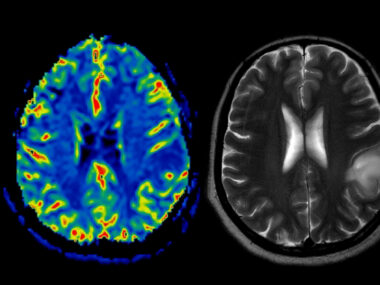Ultraviolet B therapy may help stabilize MS inflammation
Findings from small trial suggest immune-calming role for UVB
Written by |

Ultraviolet light therapy may help reduce inflammation and disease severity in people with multiple sclerosis (MS), according to data from a small Phase 1 clinical trial.
Researchers used Octave’s MS Disease Activity (MSDA) scale — a clinically validated test for monitoring MS disease activity — and found the majority of people initially categorized as high-severity no longer fell into that group after about three months of narrowband ultraviolet B (NB-UVB) treatment.
These early findings support plans for a larger, multicenter Phase 2 trial that will evaluate NB-UVB’s impact on fatigue and other MS outcomes. That trial will be led by Cytokind, which offers a range of NB-UVB lights for clinical and home use, according to a company press release.
The study, “Proteomics confirms immune stabilizing effects of narrowband UVB treatment in patients with clinically isolated syndrome and multiple sclerosis,” was published in Multiple Sclerosis and Related Disorders.
Researchers explore how sunlight, UV light may influence MS risk
Sunlight affects the body in many ways. For example, exposure to sunlight has been identified as a key risk factor for MS, with the disease being more common further from the equator where people get less sunlight.
Because ultraviolet light helps the skin make Vitamin D, the relationship between MS and sunlight exposure has long been thought to be driven mainly by vitamin D. But studies testing whether vitamin D supplements might help ease MS have produced mixed results, generally finding little or no benefit.
Researchers are now exploring another idea — that ultraviolet light may affect other immune-modulating molecules in the body. To study this, researchers analyzed blood samples collected during a clinical trial called PhoCIS (ACTRN 12614000185662).
The trial enrolled 20 people with clinically isolated syndrome (CIS), who had experienced a first episode of MS-like symptoms but didn’t yet meet the criteria needed to establish an MS diagnosis.
In the trial, funded in part by Cytokind, half of participants received only standard-of-care treatment, while the others underwent NB-UVB therapy three times a week for eight weeks.
NB-UVB delivers a specific wavelength of ultraviolet B light to the skin. This type of light therapy, or phototherapy, is already used to treat certain skin conditions such as psoriasis and eczema.
Early trial hints at fewer MS progressions with UVB therapy
Results from PhoCIS, first published in 2018, showed that all participants given standard-of-care treatment progressed to overt MS after a year of follow-up. In contrast, only seven of the 10 people treated with NB-UVB progressed to clinically definite MS. Those who received phototherapy also reported less fatigue, better social function, and showed changes in their immune cells.
The researchers stressed the study was too small to draw meaningful conclusions, but said the findings supported further exploration of NB-UVB in MS.
Here, the scientists examined blood samples from the PhoCIS trial to better understand what drove the beneficial effects of NB-UVB.
They found that inflammatory molecule levels stayed the same in the control group, but 23 of 92 inflammatory proteins were reduced in patients who received NB-UVB after about three months.
The “data suggested an anti-inflammatory effect of NB-UVB that persisted for 30 days beyond the 60-day treatment period,” the scientists wrote.
The researchers also analyzed MSDA test scores, which assess the overall severity of MS based on levels of 18 inflammatory molecules. Results indicated a 1.7 decrease in MSDA scores following NB-UVB phototherapy.
MS disease activity scores improved after UVB treatment
Initially, 25% of controls and 56% of NB-UBV-treated patients were in the high disease severity group. After three months, that figure rose to 63% in controls but dropped to 11% in people who received phototherapy.
Overall, the researchers concluded these data provide “preliminary but compelling evidence that NB-UVB phototherapy exerts a broad anti-inflammatory effect in patients with CIS/MS.”
“Our mission at Cytokind is to transform care for people living with chronic autoimmune conditions, making proven, immune-calming therapies accessible without the burden of additional drugs, and from the comfort of their own homes,” said John MacMahon, CEO of Cytokind.
“We believe in the translational application of these FDA-cleared lights, which is helping those with dermatological conditions, and hope to bring the same life-improving benefits to those with chronic neurological conditions. We believe once NB-UVB resets their immune system, their body and minds can finally get some rest. We expect to confirm that in our Phase II trial,” MacMahon added.

